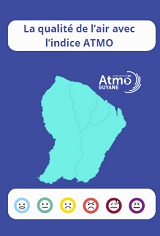Blada.com
mardi 03 février
Boîtes aux lettres
Courrier des lecteurs
Petites annonces
Emploi / Formation
Covoiturage
Infos citoyennes
Infos citoyennes
05/02/21
La visite d’un infirmier pour les personnes testées positives au Covid-19
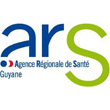 Depuis le 21 janvier, les enquêteurs sanitaires en charge du contact tracing proposent systématiquement la visite d’un infirmier libéral aux personnes déclarées positives au Covid-19. Cette rencontre permet d’aider le patient à organiser son isolement, de tester les autres membres du foyer, de proposer un accompagnement, d’informer le médecin traitant et de rappeler les messages de santé publique. Vingt-quatre infirmiers participent au dispositif.
Depuis le 21 janvier, les enquêteurs sanitaires en charge du contact tracing proposent systématiquement la visite d’un infirmier libéral aux personnes déclarées positives au Covid-19. Cette rencontre permet d’aider le patient à organiser son isolement, de tester les autres membres du foyer, de proposer un accompagnement, d’informer le médecin traitant et de rappeler les messages de santé publique. Vingt-quatre infirmiers participent au dispositif.
Il est 19 heures ce mercredi soir. Après sa journée de visites chez ses patients et avant sa garde de nuit chez les sapeurs-pompiers de Cayenne, Delphine Pérus, infirmière libérale de l’Île-de-Cayenne, va rendre visite à deux jeunes femmes déclarées positives au Covid-19 lundi. L’Assurance maladie propose depuis deux semaines ce service, lors des appels de contact tracing, à tous les personnes nouvellement déclarées porteuses du virus. Le but est de les aider dans leur isolement à domicile et de détecter d’éventuelles difficultés sociales ou problématiques de santé autres.
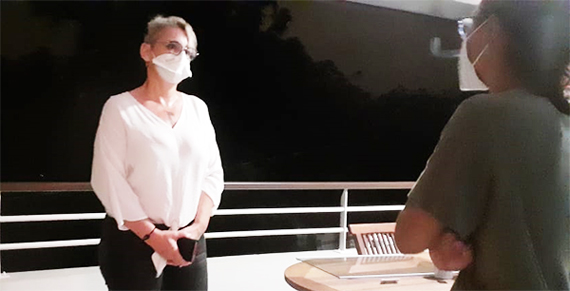 La première visite, ce soir-là, est pour une secrétaire médicale de 28 ans, sur la ZAC Hibiscus, à Cayenne. Elle accueille l’infirmière sur son balcon, au premier étage d’un des récents immeubles du quartier. Son compagnon a été testé positif le même jour. Leur petite fille, en revanche, n’a pas attrapé le virus. Elle est donc gardée par sa grand-mère. Tout se passe bien pour cette professionnelle de santé déjà sensibilisée à la maladie. L’appartement est bien aéré, son enfant est gardée, la famille dépose les courses, son conjoint télétravaille. Seule la perte de goût l’inquiète un peu, et sa fille qui demande tous les jours quand elle pourra rentrer à la maison. « Pour vous, toutes les conditions sont bonnes. Je n’ai pas grand-chose à faire pour vous », reconnaît Delphine Pérus. Elle s’assure toutefois que la jeune femme a bien tous les numéros de téléphone des services qui peuvent l’aider si besoin. « N’hésitez pas, même si votre demande vous paraît dérisoire. Vous pouvez aussi m’appeler, 24 heures/ 24. »
La première visite, ce soir-là, est pour une secrétaire médicale de 28 ans, sur la ZAC Hibiscus, à Cayenne. Elle accueille l’infirmière sur son balcon, au premier étage d’un des récents immeubles du quartier. Son compagnon a été testé positif le même jour. Leur petite fille, en revanche, n’a pas attrapé le virus. Elle est donc gardée par sa grand-mère. Tout se passe bien pour cette professionnelle de santé déjà sensibilisée à la maladie. L’appartement est bien aéré, son enfant est gardée, la famille dépose les courses, son conjoint télétravaille. Seule la perte de goût l’inquiète un peu, et sa fille qui demande tous les jours quand elle pourra rentrer à la maison. « Pour vous, toutes les conditions sont bonnes. Je n’ai pas grand-chose à faire pour vous », reconnaît Delphine Pérus. Elle s’assure toutefois que la jeune femme a bien tous les numéros de téléphone des services qui peuvent l’aider si besoin. « N’hésitez pas, même si votre demande vous paraît dérisoire. Vous pouvez aussi m’appeler, 24 heures/ 24. »
Ce n’est pas toujours le cas. « La deuxième personne que j’étais allée voir, la semaine dernière, c’était une catastrophe. C’était un squat où, avec la meilleure volonté du monde, il était impossible de s’isoler. Dans de telles conditions de promiscuité, il était impossible de respecter quoi que ce soit. J’ai signalé la situation pour qu’elle puisse bénéficier d’un isolement à l’hôtel. »
Autre situation, toujours la semaine dernière, dans le centre-ville de Cayenne. Une maison créole rénovée en appartement avec une cour intérieure et un logement au fond de la cour. C’est là que vivait la patiente. « Elle avait compris l’isolement. Elle s’était organisée avec ses enfants. Mais c’était elle qui faisait le ménage des parties communes et elle continuait de le faire. Et c’est aussi elle qui est venue m’ouvrir la porte de l’immeuble. Je lui ai donc donné quelques astuces pour éviter de transmettre le virus », se souvient Delphine Pérus.
Apporter son aide, sa connaissance de la maladie, c’est ce qui a motivé Delphine Pérus, quand l’Assurance maladie et l’Agence régionale de santé ont lancé un appel à volontaire pour réaliser ces visites à domicile chez les patients diagnostiqués positifs au Covid-19. « Je ne suis pas d’accord avec tout ce qui est mis en place mais je sais ce que je sais faire et ce que je peux apporter. »
Lors d'une rencontre avec l'ARS, Laurence Cauchard, médecin chef de la direction régionale du service médical, à la Caisse générale de sécurité sociale, se réjouissait que « de plus en plus d'infirmières sont volontaires. Les retours des premiers patients visités et des infirmières sont très positifs.»
- Le casse-tête de l'adresse
Delphine Perus nous avait prévenu, en découvrant l’adresse d’une des patientes à voir mercredi soir : être infirmière libérale en Guyane, c’est parfois aussi compliqué que soutenir une thèse de géographie. L’impasse où habite la patiente n’évoque rien ni à l’IDEL ni à l’auteur de ses lignes – qui cumulent à eux deux quarante années à arpenter l’Île-de-Cayenne. Mais le nom de l’impasse ne parle pas non plus à Mappy, ni à Waze, ni à Viamichelin, ni à Maps… en fait à pas grand-monde. « Ici, on a toujours dit qu’on habitait [il cite une grande rue de Cayenne], soupire un riverain, qui vit là depuis trente-six ans. La mairie nous a mis une pancarte il y a un an, avec le nom d’une personne qu’on ne connaît pas. »
Trouver l’impasse n’a pas été une mince affaire. Il s’agit désormais de trouver le n°6, alors que la nuit est tombée sur Cayenne depuis plus d’une heure. « Des numéros, il n’y en a jamais eu », poursuit le riverain. Le numéro de téléphone de la patiente, par un malencontreux concours de circonstances, n’est pas le bon. L’impasse ne compte que sept maisons et un petit immeuble, mais pas grand-monde dehors à cette heure-ci, pas de nom sur les boîtes aux lettres et peu de sonnettes. Un automobiliste ouvre le portail électrique de l’immeuble pour rentrer chez lui. Delphine Perus se faufile. L’automobiliste n’a jamais entendu le nom de la patiente. Toujours pas de nom sur les boîtes aux lettres, ni sur les boutons des interphones. Un locataire vient ouvrir à l’infirmière. Il n’a jamais entendu le nom de la patiente. Delphine Perus se lance alors dans un porte à porte effréné, à la recherche de sa patiente. A la sixième porte, deux étages plus haut, ce sera la bonne !
♦ Des visites pour conseiller, tester, accompagner…
Les visites à domicile d’infirmiers libéraux, réalisées depuis le 21 janvier en Guyane, sont l’un des principaux outils de la nouvelle stratégie « Tester, alerter, protéger ». Cette visite est « réalisée idéalement dans les vingt-quatre heures suivant l'appel », rappelait le Dr Cauchard, médecin chef à la direction régionale du service médical, à la Caisse générale de sécurité sociale (CGSS), lors d'une rencontre avec l'ARS. Au plus tard, elle est réalisée dans les 48 heures suivant l’annonce du résultat positif. Elle permet au professionnel de santé de :
- Relayer les messages de santé publique, de bonne appropriation de la démarche, de l’importance de respecter l’isolement, des gestes barrière et des signes cliniques qui doivent alerter. Ceci afin d’aider les personnes à « réussir leur isolement » en leur prodiguant des conseils sanitaires et d’organisation de la vie quotidienne en particulier ;
- Tester les personnes du foyer non testées ;
- Identifier les personnes nécessitant un appui social à leur isolement pour réaliser le lien avec Yanacov lorsqu’un besoin est identifié ;
- S'assurer qu'il n'y a pas de risque de gravité ;
- Vérifier que le patient a bien récupéré ses masques ;
- Informer systématiquement le médecin traitant de la réalisation de la visite.
Au cours de la première semaine, 31 patients ont demandé à recevoir cette visite.
En pratique, les enquêteurs sanitaires en charge du contact tracing proposent systématiquement aux personnes testées positives à la Covid un accompagnement sanitaire, matériel et psychologique à l’isolement. L’Assurance maladie transmet ensuite la liste des patients ayant accepté la visite au GCS Guyasis. Le Dr Gilles Thomas sollicite alors un infirmier pour réaliser les visites de son secteur géographique. Si le patient a l’habitude d’être suivi par un infirmier, il peut le signaler pour qu’il réalise cette visite. Actuellement, 24 infirmiers se sont portés volontaires sur ce dispositif pour l’ensemble de la Guyane, dont la très large majorité dans l’Île-de-Cayenne et, malheureusement, aucun dans le secteur des Savanes, entre Macouria et Iracoubo.
La Caisse générale de sécurité sociale (CGSS) recontactera le patient à J4 et à J7 après son test positif pour le suivi et la fin de son isolement.
Si la visite à domicile de l'infirmier n'est pas accepté ou si aucun infirmier ne peut la réaliser et en l'absence de médecin traitant, un suivi médical est assuré à J2 par Véyé mo santé (Île-de-Cayenne, Kourou et Savanes) ou le Centre Hospitalier de l'Ouest Guyanais (Saint-Laurent du Maroni et le littoral ouest). En cas de vulnérabilité sociale, il est proposé une visite à domicile par les équipes de YanaCov et Médecins du monde (Île-de-Cayenne), de la Croix-Rouge française (Kourou et Savanes) ou du Chog (Saint-Laurent du Maroni et littoral ouest). Dans les communes de l'intérieur, le suivi est assuré par les centres délocalisés de prévention et de soins (CDPS).
Since January 21, the health investigators in charge of contact tracing have systematically offered a visit by a liberal nurse to people who test positive for Covid-19. This meeting helps the patient to organize his isolation, to test the other members of the household, to offer support, to inform the attending physician and to remind the public health messages. Twenty-four nurses participate in the device.
It is 7 p.m. this Wednesday evening. After her day of visits to her patients and before her night shift with the Cayenne firefighters, Delphine Pérus, liberal nurse from Île-de-Cayenne, will visit two young women declared positive for Covid-19 on Monday . Health Insurance has been offering this service for two weeks, during contact tracing calls, to all people newly declared to be carrying the virus. The aim is to help them in their isolation at home and to detect any social difficulties or other health problems.
The first visit that evening was for a 28-year-old medical secretary at the ZAC Hibiscus in Cayenne. She greets the nurse on her balcony, on the first floor of one of the newer buildings in the area. Her partner tested positive the same day. Their little girl, on the other hand, did not catch the virus. She is therefore looked after by her grandmother. Everything is going well for this healthcare professional who is already aware of the disease. The apartment is well ventilated, her child is looked after, the family drops off the groceries, her partner works from home. Only the loss of taste worries him a little, and his daughter who asks every day when she can come home. “For you, all conditions are good. I don't have much to do for you, " admits Delphine Pérus. However, she makes sure that the young woman has all the telephone numbers of the services that can help her if necessary. "Do not hesitate, even if your request seems petty. You can also call me, 24 hours a day. "
It's not always the case. “The second person I went to see last week was a disaster. It was a squat where, with the best will in the world, it was impossible to isolate yourself. In such promiscuous conditions, it was impossible to respect anything. I reported the situation so that she could benefit from isolation at the hotel. "
Another situation, still last week, in downtown Cayenne. A Creole house renovated into an apartment with an interior courtyard and accommodation at the end of the courtyard. This is where the patient lived. “She understood the isolation. She had organized with her children. But she was the one who cleaned the common areas and she continued to do so. And she was also the one who came to open the door to the building for me. So I gave him some tips to avoid transmitting the virus, ” recalls Delphine Pérus.
Providing her help, her knowledge of the disease, this is what motivated Delphine Pérus, when the Health Insurance and the Regional Health Agency launched a call for volunteers to carry out these home visits to patients diagnosed positive at Covid-19. “ I don’t agree with everything that is put in place but I know what I can do and what I can contribute. "
During a meeting with the ARS, Laurence Cauchard, chief physician of the regional medical service, at the General Social Security Fund, was delighted that "more and more nurses are volunteering. The returns of the first patients visited and nurses are very positive. "
- The puzzle of the address
Delphine Perus had warned us, when she discovered the address of one of the patients to be seen on Wednesday evening: being a private nurse in French Guiana is sometimes as complicated as defending a geography thesis. The dead end in which the patient lives evokes nothing either to IDEL or to the author of its lines - which together have accumulated two forty years of surveying the island of Cayenne. But the name of the dead end doesn't speak to Mappy, or Waze, or Viamichelin, or Maps either ... in fact, not many people. "We have always said here that we live [he quotes a main street in Cayenne], sighs a local resident, who has lived there for thirty-six years. The town hall put up a sign for us a year ago with the name of someone we don't know. "
Finding the cul-de-sac in the street was no easy task. It is now time to find No. 6, after night has fallen on Cayenne for over an hour. "There have never been numbers," continues the resident. The patient's phone number, by some unfortunate combination of circumstances, is incorrect. There are only seven houses and a small building in the dead end, but not many people outside at this hour, no names on the mailboxes and few doorbells. A motorist opens the building's electric gate to get home. Delphine Perus sneaks in. The motorist never heard the patient's name. Still no name on the mailboxes, nor on the buttons of the intercoms. A tenant comes to open the door to the nurse. He never heard the patient's name. Delphine Perus then launches into a frantic door to door, in search of her patient. At the sixth door, two floors higher, it will be the right one!
Visits to advise, test, support ...
Home visits by liberal nurses, carried out since January 21 in French Guiana, are one of the main tools of the new "Test, Alert, Protect" strategy. This visit is "ideally carried out within twenty-four hours of the call", recalled Dr Cauchard, chief physician at the regional directorate of the medical service, at the General Social Security Fund (CGSS), during a meeting with the ARS. At the latest, it is carried out within 48 hours of the announcement of the positive result. It allows the healthcare professional to:
- Relay the messages of public health, good ownership of the approach, the importance of respecting isolation, barrier gestures and clinical signs that should alert. This in order to help people to "succeed in their isolation" by providing them with health advice and organization of daily life in particular;
- Testing people in the household who have not been tested;
- Identify people requiring social support in their isolation to establish a link with Yanacov when a need is identified;
- Make sure that there is no risk of seriousness;
- Check that the patient has recovered his masks;
- Systematically inform the attending physician of the performance of the visit.
During the first week, 31 patients requested to receive this visit.
In practice, the health investigators in charge of contact tracing systematically offer people who test positive for Covid health, material and psychological support in isolation. Health Insurance then sends the list of patients who accepted the visit to GCS Guyasis. Dr Gilles Thomas then asked a nurse to carry out visits to his geographical area. If the patient is used to being followed by a nurse, he or she can report it for this visit. Currently, 24 nurses have volunteered for this system for the whole of French Guiana, the vast majority of them in Île-de-Cayenne and, unfortunately, none in the Savannah sector, between Macouria and Iracoubo.
The General Social Security Fund (CGSS) will contact the patient again on D4 and D7 after his positive test for follow-up and the end of his isolation.
If the nurse's home visit is not accepted or if no nurse can perform it and in the absence of an attending physician, medical follow-up is provided on D2 by Véyé mo santé (Île-de-Cayenne, Kourou and Savanes) or the West Guianese Hospital Center (Saint-Laurent du Maroni and the west coast). In the event of social vulnerability, a home visit is offered by the teams of YanaCov and Médecins du monde (Île-de-Cayenne), the French Red Cross (Kourou and Savanes) or the Chog (Saint-Laurent du Maroni). and west coast). In the communes of the interior, the follow-up is ensured by the delocalized centers of prevention and care (CDPS).
Raccourcis
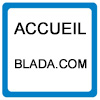
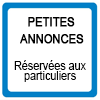
passer une petite annonce
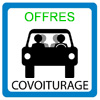
passer une annonce de covoiturage
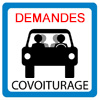
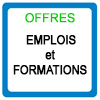
passer une annonce d’emploi
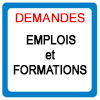
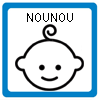
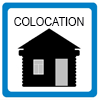
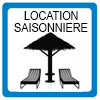
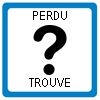
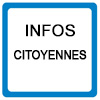
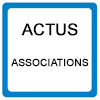
associations, postez vos actualités
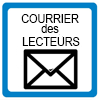
participez au courrier des lecteurs
La Guyane c’est ici
La qualité de l’Air avec
ATMO
Photothèque

Lancements 2022
Vol 259 Ariane 5



